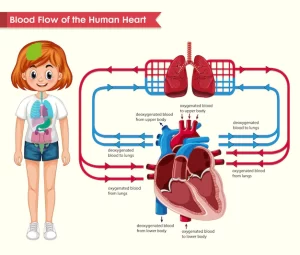
How Your Heart WorksThe human heart pumps blood throughout the body, providing our tissues with oxygen and nutrients.
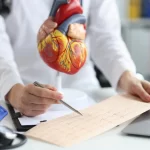
Coronary Heart Disease Overview
Coronary heart disease, also known as coronary artery disease, is the leading cause of death in both men and women in the United States.
Angina and Heart Disease
While certain drugs and surgical procedures can manage angina (chest pain), making healthy lifestyle changes can also ease these painful outbursts.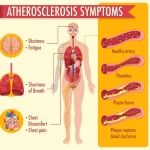
Causes of Coronary Heart Disease and Heart Attacks
The underlying cause of coronary heart disease and heart attack is atherosclerosis. This is the buildup of fatty plaques and cholesterol in the walls of coronary arteries that could lead to a blood clot.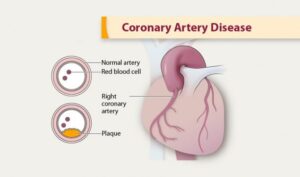
Symptoms of Coronary Heart Disease
Ever wonder if you may have coronary heart disease? Here's a roundup of common symptoms.
What is a Heart Attack?
Heart attacks usually occur in people with coronary artery disease (CAD) when an artery becomes completely blocked by a blood clot at the site of a ruptured plaque.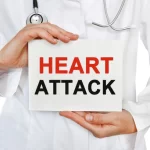
Warning Signs of a Heart Attack
Learn how to recognize heart attack warning signs and what to do.
Heart Attack and Gender Differences
What is the difference between men and women during a heart attack?
Heart Attack Prevention
Heart attacks are the leading cause of death among Americans. Here's your guide to a healthy and happy heart.
Diagnosis of Coronary Heart Disease
Learn about the various screening tests for assessing your risk of heart disease.
Risk Assessment for Heart Attack
Have you ever been confused about cardiovascular study findings? Learn how to assess your risk for a heart attack.
Broken Heart Syndrome
A broken heart can be emotionally painful, but can you really die from it?
Risk Factors for Heart Disease Beyond Your Control
Knowing the risk factors for heart disease and coronary artery disease you can’t change, like family history, can inspire you to change the ones you can.
Heart Disease in Women
Coronary heart disease symptoms in women may be different than symptoms in men.

13 Essential Heart-Healthy Steps for Women
Here are 13 tips for women to better their heart health and reduce risk of heart disease and heart attack.
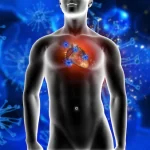
Heart Disease in Men
Men tend to get heart disease earlier in their lives than women do. The average age for a first heart attack is 65 for men and 72 for women.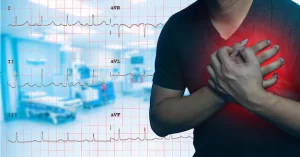
Risk Factors for Heart Disease that Can Be Changed
Learn these tips on how to adjust your lifestyle in ways that may better your heart health and prevent heart disease and heart attack.
Making Lifestyle Changes to Reduce Risk of
Heart Disease
Learn how to make the most of diet and physical activity to lower your risk of heart disease and heart attack, and better your heart health. 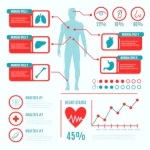
Emerging Risk Factors for Heart Disease
Learn about the latest emerging risk factors that can predict stroke, heart attack, and coronary artery disease.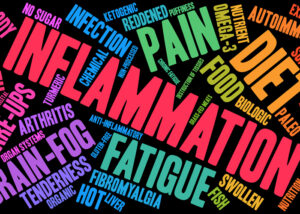
Chronic Inflammation's Relationship with
Heart Disease and Other Diseases
Get the rundown on inflammation and how it impacts chronic illnesses including heart disease. 
Sugar: Heart Health and Obesity
Sugar is dangerous for your heart health and can lead to obesity. But the damage is reversible.
Alcohol and Heart Health
Research findings suggest that small amounts of alcohol "may" be good for the heart. Other research suggests otherwise. Learn about the research so you can make the right choice for you.
Soda: Impacts of Drinking Regular and
Diet Soda on Gut Fat
Soda both regular and diet packs on the worst kind of fat. 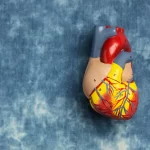
Sexual Activity and Coronary Heart Disease
Don’t let heart disease limit your sexual activity.
Eat a Healthy Diet to Improve Your Heart Health
Learn how to improve your diet to reduce your risk of a heart attack or coronary heart disease.
Varying the DASH Diet
A recent study recommends varying the DASH diet with other nutrients such as full-fat dairy, pork, protein, and saturated fats for further improvements in heart health.
Eggs: Health Benefits
Recent research exonerates eggs, suggesting they may even be good for your heart.
Dietary Fat and Heart Health
While there remains much to be known about the role of fat in our diet, a few things are clear.
Omega-3 Fatty Acids Provide Protection
Against Heart Disease
Here's what you need to know about adding omega-3s to your diet and how it affects heart health. 
Health Risks of One Large Fatty Meal
One large fatty meal can have a variety of immediate negative effects, which are most risky if you already have heart disease or risk factors for it.
Ornish Diet and Lifestyle Approach to Heart Health
The Ornish diet is more than a diet—it’s a lifestyle.
Evidence that a Vitamin D Deficiency May Contribute
to
Cardiovascular Disease Risk
Vitamin D and heart health: what we know and what we are still not sure about. 
Increase Physical Activity for a Healthy Heart
Physical activity and exercise is key to a healthy heart.
Fitness and Resting Heart Rate
A growing body of research has found a link between a high resting heart rate and increased risk of heart disease and death.
Achieving Cardiovascular Fitness
Cardiovascular fitness and exercise is the most important component to health and well-being.
The Benefits of Walking on Heart Health
Walking is an ideal exercise and physical activity because it is so simple.
Stair Climbing for Cardiovascular Fitness and Strength
Climbing stairs regularly can improve cardiovascular fitness and strength.
Traditional Chinese Exercise and Heart Health
Growing evidence shows that traditional Chinese exercise may be very beneficial to heart disease patients, both physically, and mentally.
Healthy Weight, Moderate Alcohol Consumption,
Stress Reduction, and Flu Shots Improve Heart Health
These healthy ways of living contribute to a healthy heart and decrease your risk of a heart attack and coronary heart disease. 
Quit Smoking to Improve the Health of Your Heart
Quitting smoking is the most effective lifestyle change you can make for preventing heart attack and coronary heart disease. Here are several options that can increase your chances of breaking the habit.
Benefits and Risks of Taking Aspirin to
Treat Heart Disease
Regular use of aspirin can play an important role in reducing risk for heart disease, heart attack, and certain types of cancer. 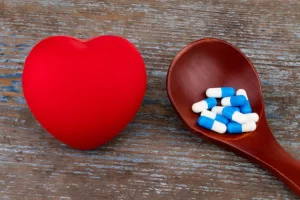
Deciding if a Statin is Right Treatment to
Reduce Your Risk for Heart Disease
Find out if using statins to lower your LDL cholesterol and reduce your risk of heart disease and heart attack is right for you. 
Statins for Lowering Cholesterol and Primary
Prevention of Heart Disease
Here's the lowdown on statins, the most effective drug for lowering high cholesterol (like bad LDL cholesterol) and reducing symptoms of coronary artery disease while also having few side effects. 
Statins as a Secondary Prevention for Heart
Disease and Other Diseases
Statins are really good at treating people with high cholesterol and have other benefits as well, including reducing symptoms of coronary artery disease. 
Statins as Primary Prevention for Heart Disease
for Older Adults
Learn the latest about the pros and cons of using statins to prevent heart disease and heart attack for people over 75. 
Comparing Statins
Learn which type of statin is best your heart health in treating high cholesterol and other heart disease symptoms.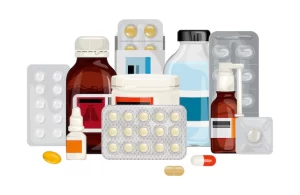
Non-Statin Medications that Aid with
Cholesterol Control
Find out which medications besides statins might help lower LDL cholesterol and learn of their potential side effects.
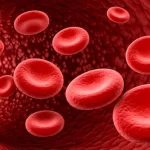
Anticoagulants: Medications to Treat
Heart Attack and Heart Disease
Here's the rundown on anticoagulant medications for treating heart disease. 
Commonly Used Drugs to Lower Blood Pressure
Learn about different high blood pressure medications and their potential side effects.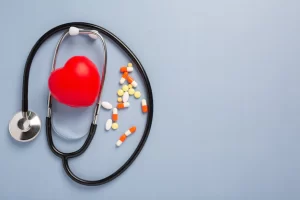
Antiplatelet Medications to Treat
Heart Attack and Heart Disease
When your doctor wants to reduce your risk of blood clots, he or she may prescribe an antiplatelet drug. 
Antianginal Medications to Treat Heart
Attack and Coronary Heart Disease
The three main types of medications used to relieve angina (chest pain) work by decreasing the heart’s demand for oxygen and increasing its blood supply. 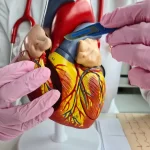
Revascularization Treatments for
Coronary Artery Disease
When the build-up of plaques in the coronary arteries is so severe that you are at high risk for a heart attack, your physician may recommend a revascularization procedure—angioplasty/stenting or bypass surgery. 
Eye Protection Recommended During
PCI Heart Procedure
Learn about the importance of eye protection during a PCI heart procedure to prevent potential cataracts and preserve your vision. 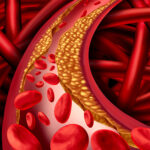
Overview of Peripheral Artery Disease
Peripheral artery disease is a dangerous and commonly overlooked disease.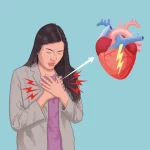
Overview of Heart Failure
The most common causes of heart failure are heart damage due to coronary heart disease (CHD) and high blood pressure.
Treatment for Heart Failure
Here's a digest of the many treatment options for heart failure.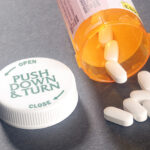
Treatment Guidelines for New Heart Failure Drugs
Learn about the new wave of medications for chronic heart failure and their potential side effects.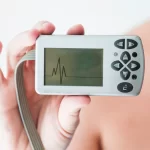
Arrhythmias and Heart Disease
Here's what you need to know about arrhythmia and atrial fibrillation to know the signs and symptoms.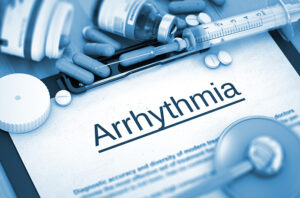
Diagnosis and Treatment of Arrhythmias
Here's how to properly diagnose and treat arrhythmia and atrial fibrillation.

Sleep Apnea and Heart Disease
How does sleep apnea affect heart disease?
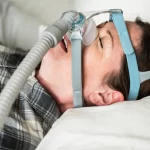
Sleep Apnea Risks After Angioplasty Heart Procedure
People who have trouble breathing at night may face an increased risk of stroke, heart failure, or death after having angioplasty (a procedure to widen narrowed arteries).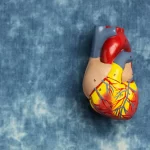
Diabetes Complications: Coronary Heart Disease,
Stroke, and Peripheral Arterial Disease
People with diabetes are at increased risk for clogging of the arteries. Learn how to prevent diabetes-related problems down the road. 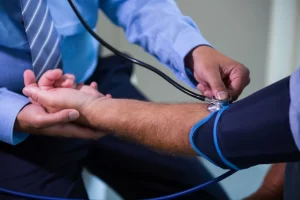
Depression and Anxiety in Type 2 Diabetes Leads
to Worse Cardiovascular Outcomes
A study finds that depression and anxiety are strong predictors of heart disease for those with type 2 diabetes.
to Worse Cardiovascular Outcomes
